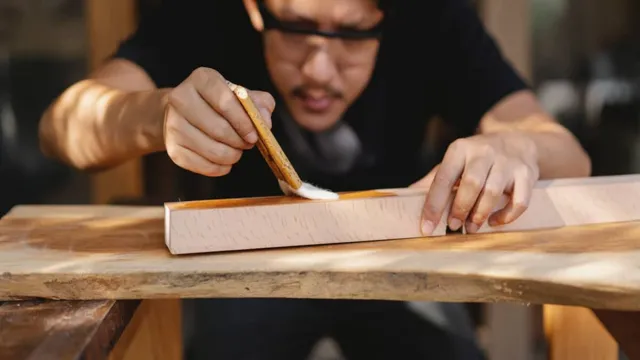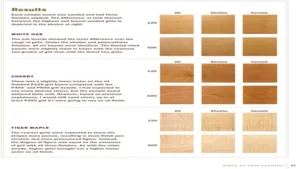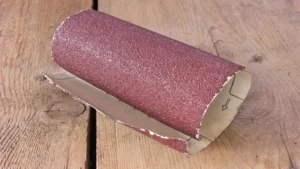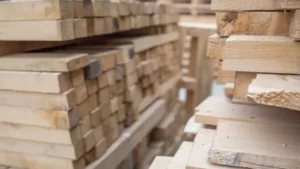Have you ever wondered if you can apply polyurethane over lacquer? It’s a common question among DIY enthusiasts and professional woodworkers alike. Polyurethane is a popular coating that provides excellent durability and protection to wood surfaces, while lacquer is a quick-drying and versatile finish that has been a mainstay for centuries. However, the question remains whether these two coatings can be compatible with each other.
In this blog post, we’ll dive deep into the subject and answer this perplexing question so you can get the perfect finish for your next project.
Understanding Lacquer and Polyurethane
“Can you apply polyurethane over lacquer?” This is a common question that arises when dealing with wooden surfaces. The answer is that it depends on the type of lacquer used. If the lacquer is a traditional nitrocellulose lacquer, then applying polyurethane on top would not be recommended.
This is because polyurethane requires a porous surface to adhere properly, and nitrocellulose lacquer creates a non-porous surface. However, if the lacquer being used is a water-based acrylic lacquer, then it is safe to apply polyurethane over it. In fact, doing so will provide added protection to the surface.
It is important to always test a small, inconspicuous area before applying a coating to the entire surface to ensure compatibility and proper adhesion.
What is Lacquer?
Lacquer is a type of finish that is commonly used in woodworking and other decorative applications. It is typically made from nitrocellulose or a combination of resins and solvents, and it is known for its ability to dry quickly and form a hard, durable surface. However, despite its many benefits, lacquer can also be quite brittle and prone to damage over time.
This is where polyurethane comes in. Unlike lacquer, polyurethane is made from a combination of resins and hardeners, which make it more flexible and resistant to wear and tear. Ultimately, while both lacquer and polyurethane have their strengths and weaknesses, choosing the right finish for your project will depend on a variety of factors, such as the intended use of the item, the level of durability required, and personal preference.
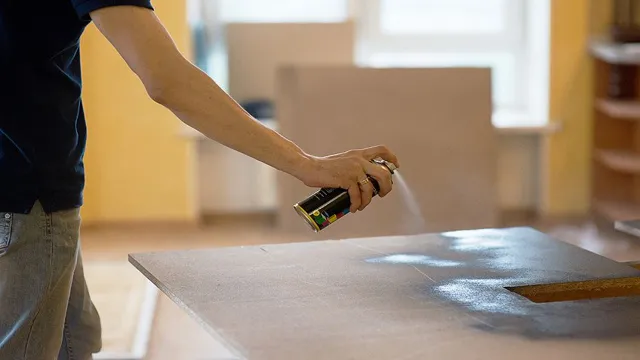
What is Polyurethane?
Polyurethane Polyurethane is a synthetic material commonly used for various applications such as insulation, furniture, and coatings. When it comes to wood finishes, polyurethane is often preferred by many due to its high durability and resistance to chemicals and harsh elements. On the other hand, lacquer is another common wood finish that has been used for centuries, but it has become less popular due to its tendency to yellow over time and its susceptibility to damage from moisture and heat.
Polyurethane, on the other hand, can provide a clear and glossy finish that is resistant to scratches and stains, making it ideal for high-traffic areas or items that require frequent use. While both lacquer and polyurethane have their own benefits and drawbacks, understanding their characteristics can help you choose the most suitable finish for your project.
Applying Polyurethane over Lacquer
If you are wondering whether you can apply polyurethane over lacquer, the answer is yes, but with some precautions. Before proceeding, make sure that the lacquer has fully cured, meaning that it has hardened and cured completely to prevent any issues with the polyurethane. Once the lacquer has cured, you can use a fine-grit sandpaper to lightly sand it to create a surface that the polyurethane can stick to.
After sanding, make sure to wipe down the surface with a clean cloth to remove any dust or debris, which could cause the polyurethane to attach improperly. It’s also important to test a small, inconspicuous area first to ensure that the polyurethane doesn’t react with the underlying lacquer. With these precautions in mind, you can apply polyurethane over lacquer for a protective and durable finish.
Why Apply Polyurethane over Lacquer?
If you’re wondering why you should apply polyurethane over lacquer, there are a few reasons to consider. Although lacquer provides a beautiful finish, it’s not as durable as polyurethane. Polyurethane provides high resistance to scratches, stains, and water damage which makes it an excellent choice for high-use areas such as floors and tabletops.
When applying polyurethane over lacquer, it’s essential to prepare the surface properly. Make sure the surface is clean and dry before applying the polyurethane. When it comes to application, use a high-quality brush or roller to ensure the polyurethane goes on smoothly.
Keep in mind that polyurethane may alter the appearance of the lacquer’s finish, so it’s essential to test a small, inconspicuous area before applying it to the entire surface. Overall, applying polyurethane over lacquer is a great way to increase the durability of your finish.
How to Apply Polyurethane over Lacquer?
If you’re wondering how to apply polyurethane over lacquer, the process is pretty straightforward. First, you’ll need to make sure that the lacquer is fully cured and sanded smooth. Then, you’ll want to clean the surface thoroughly to remove any dust or debris.
If there are any blemishes or imperfections in the lacquer, you may want to fill them in with wood filler or sand them out before applying the polyurethane. Once you’re satisfied with the smoothness of the surface, apply a thin coat of polyurethane using a high-quality brush or sprayer. Make sure to follow the manufacturer’s instructions for drying time and sanding between coats.
Repeat this process until you achieve the desired level of finish. Keep in mind that polyurethane will darken the existing color of the lacquer, so test a small area first to ensure that you’re happy with the results. With patience and attention to detail, you can achieve a beautiful and long-lasting finish on your woodworking project.
Conclusion
In the world of woodworking, the question of whether you can apply polyurethane over lacquer is a bit like asking if you can blend oil and water. Sure, you could try, but the results might not be what you’re hoping for. While it’s technically possible to apply polyurethane over lacquer, the two finishes have different properties and can react in unpredictable ways.
It’s often best to stick with one type of finish for your project, or to do thorough research and testing before attempting to combine them. In the end, the key to a successful finish is not just the products you use, but the knowledge and skill you bring to the craft.”
FAQs
What is the difference between polyurethane and lacquer?
Polyurethane is a synthetic coating that provides durable protection for various surfaces, while lacquer is a traditional finishing material derived from natural substances such as shellac and nitrocellulose.
Can you apply polyurethane over lacquer?
It is not recommended to apply polyurethane over lacquer. The two finishes may not be compatible and can cause adhesion issues or result in a cloudy or uneven surface.
How do you prepare a surface for applying polyurethane over lacquer?
Before applying polyurethane over lacquer, the surface must be thoroughly cleaned and sanded. Any wax or polish residue should be removed, and the surface must be allowed to dry completely before applying the polyurethane.
What are the benefits of using polyurethane over lacquer?
The main benefit of using polyurethane over lacquer is its durability and resistance to abrasion and chemicals. Additionally, it provides better protection against moisture and UV rays and has a longer lifespan.
Can you use lacquer over polyurethane?
It is possible to use lacquer over polyurethane, but it may not provide optimal adhesion. It is recommended to test a small inconspicuous area before applying lacquer over polyurethane.
How many coats of polyurethane should be applied over lacquer?
It is not recommended to apply polyurethane over lacquer. However, if it is necessary, only one thin coat of polyurethane should be applied over lacquer after testing a small inconspicuous area.
Can you mix polyurethane and lacquer together?
It is not recommended to mix polyurethane and lacquer together. The two finishes may not be compatible and can result in a cloudy or uneven surface or cause adhesion issues. It is best to stick to one type of finish.
